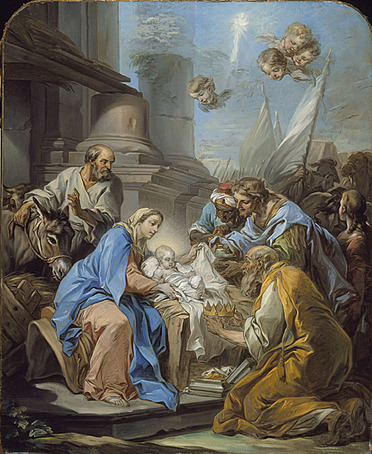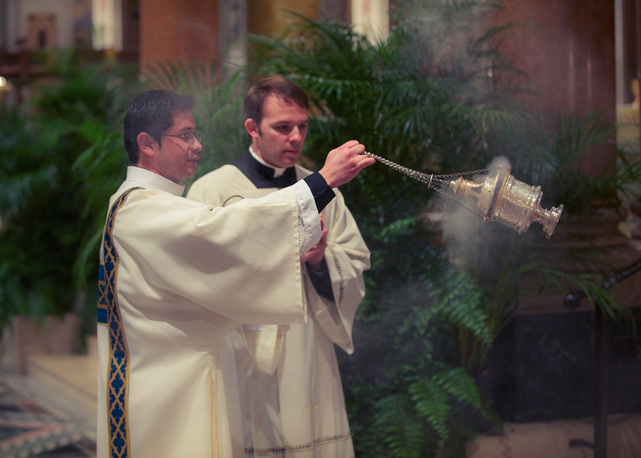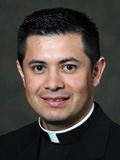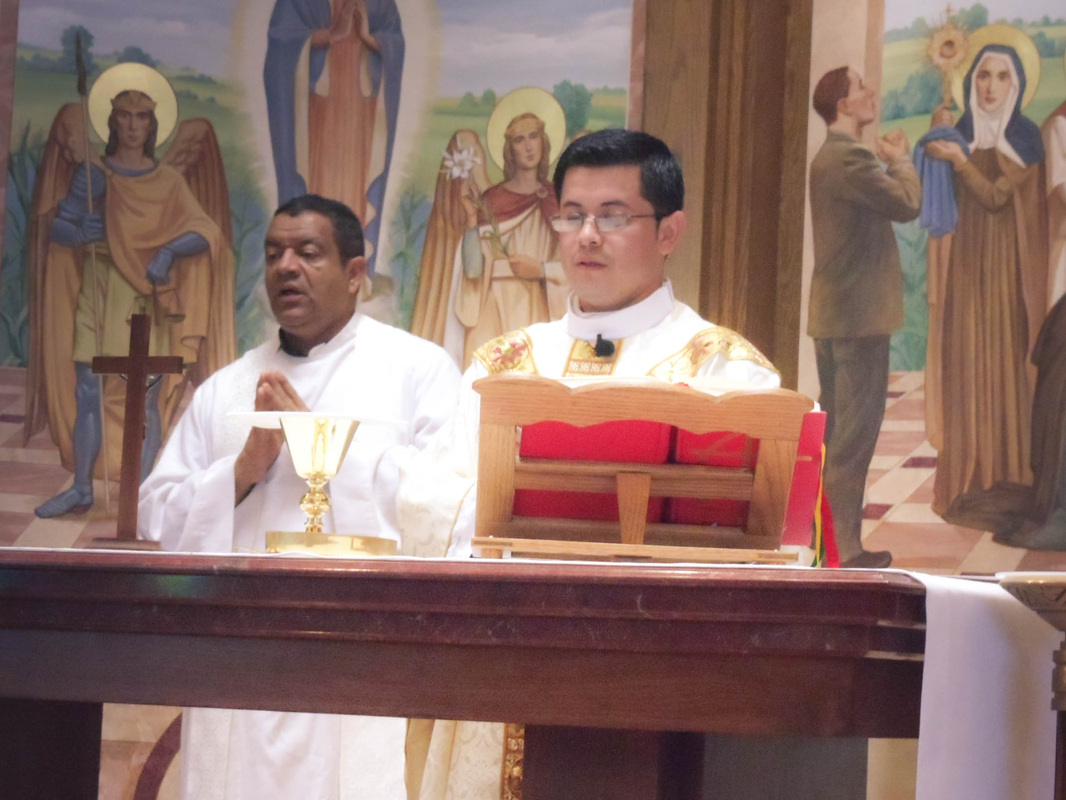|
Dear brothers and sisters, St. Paul, in his First Letter to the Corinthians, writes, “Brothers and sisters: I should like you to be free of anxieties. An unmarried man is anxious about the things of the Lord, how he may please the Lord. But a married man is anxious about the things of the world, how he may please his wife, and he is divided. An unmarried woman or a virgin is anxious about the things of the Lord, so that she may be holy in both body and spirit. A married woman, on the other hand, is anxious about the things of the world, how she may please her husband” (1 Cor 7:32-34). St Paul, in this passage, explains the two ways through which we can serve God; the priestly and celibate life as well as the marital-conjugal life. According to St. Paul, the celibate person is more able to give fully his/her life to God’s service. Since the person in this particular vocation does not have the concerns of providing and caring for a family. Therefore the person can dedicate more time to prayer and God’s service through the community. Celibate people are those who have not formed a family and have decided to live in the virtue of chastity. They are not only priests but men and women in the consecrated life who have made a vow of chastity and dedicated their lives to prayer and pastoral work. Some lay people also live a celibate life. For instance, people who are not married are called to celibacy. Also people whom have been married and lost their spouse and decided to stay as widows are called to the vocation of celibacy. The vocation to a life of celibacy certainly is a sacrifice. But this sacrifice is not in vain. If it is accepted and lived in the context of prayer and service it is a life which yields many fruits. Only in this context the sacrifice becomes a joy. Surely God calls every human being, married or celibate, to the life of service and holiness. Let us pray for all who have been called to the state of celibacy so that their sacrifices will become blessings for many. God bless you. Queridos hermanos y hermanas,
San Pablo, en su primera carta a los Corintios escribe, “Hermanos: Yo quisiera que ustedes vivieran sin preocupaciones. El hombre soltero se preocupa de las cosas del Señor y de cómo agradarle; en cambio, el hombre casado se preocupa de las cosas de esta vida y de cómo agradarle a su esposa, y por eso tiene dividido el corazón. En la misma forma, la mujer que ya no tiene marido y la soltera se preocupa de las cosas del Señor y se pueden dedicar a él en cuerpo y alma. Por el contrario, la mujer casada se preocupa de las cosas de esta vida y de cómo agradarle a su esposo” (1 Cor 7, 32-34). San Pablo aquí explica las dos formas de servir a Dios, la vida sacerdotal y célibe y la vida matrimonial-conyugal. Es claro que según San Pablo la persona célibe puede dedicarse más de lleno al servicio de Dios. Pues la persona en esta vocación, sin tener las preocupaciones del sustento y educación de una familia en particular, se puede dedicar de tiempo completo a la oración y al servicio de la comunidad. Las personas célibes son aquellas que no han formado una familia y deciden vivir en la virtud de la castidad. Ellas no solamente son los sacerdotes también están los religiosos y religiosas que han decidido consagrarse a Dios y dedicar su vida al trabajo pastoral. Algunos laicos también viven una vida célibe. Por ejemplo las personas que no se casaron están llamadas a vivir el celibato. También aquella persona que se ha casado pero que con el tiempo ha perdido su esposo o esposa y decide quedarse sola es también llamada a la vocación al celibato. La vocación a una vida de celibato sin duda que es un sacrificio. Sin embargo este sacrificio no es en vano. Si se acepta y se vive la vida de celibato en la oración y el servicio es una vida que produce muchos frutos. Solo así el sacrificio se convierte en alegría. Claro está que Dios llama al servicio y a la santidad a todas las personas célibes o casadas. Oremos por todas las personas que han sido llamadas a la vida ce celibato para que su sacrificio se vea compensado en una vida fructífera de oración y servicio. Dios los bendiga.
0 Comments
 Dear Community, We are still in the beautiful season of Christmas. The Christmas liturgy offers us the life of people who cooperate with God’s plan of salvation. For instance, during this season, we meditate with the life of Joseph and Mary, Elizabeth and Zachariah, John the Baptist, the Shepherds, the Angel Gabriel and Jesus. The last personages of the Christmas Season to come into the picture are the Magi. According to the Gospel of Matthew we know that the Magi came from the east, were guided by a star, brought gifts to baby Jesus (gold, frankincense, and myrrh) and came to adore him. We do not like characters without a proper name, and so, tradition has named them Melchior, Gaspar, and Balthazar, and has agreed that they were three, probably because there were three gifts offered to Jesus. The magi have begun their spiritual journey, moved by God’s revelation in creation, the star. However, they needed to go through the revelation of the Messiah according to sacred scriptures. So they arrived at Jerusalem and asked; where has the king of the Jews been born? The wise men of Jerusalem responded to the Magi with the prophesy of Malachi, “And you, Bethlehem, land of Judah… from you shall come a ruler, who is to shepherd my people Israel” (Matt. 2:6). The three gifts that the Magi offered to Jesus are an indication of the knowledge they had of the Messiah. Gold is a precious metal which was offered to kings; Melchior, therefore, recognized Jesus as the King of Glory. Incense was a precious metal burned by the priests on the altars of the temple as a form of praising and worshiping God; therefore, Gaspar recognized the divinity and priestly Kingship of Jesus. Myrrh was an expensive perfume which was used to embalm bodies of important people; with this gift, Balthazar recognized Jesus as True Man at the same time announcing Jesus’ death and resurrection. No doubt, the most precious gift of the Magi to Jesus was that “They fell down and worshiped him.” Dear brothers and sisters, the Messiah, who has been born in Bethlehem has given everything that you have and everything that you are. What are you offering to him? Fr. Lopez Querida Comunidad,
Todavía estamos en el tiempo hermoso de la Navidad. Lo lindo de este tiempo es que nos ofrece unos personajes con los cuales podemos aprender muchas cosas. Por ejemplo, durante este tiempo meditamos con la vida de José y María, de Juan el Bautista, Isabel y Zacarías, los pastores, el Ángel Gabriel y por supuesto Jesús. Los últimos personajes de la Navidad que hacen su aparición en la fiesta de la Epifanía del Señor son los reyes magos. Según el evangelio de Mateo sabemos cuatro cosas de los reyes magos; que venían de oriente, eran guiados por una estrella, le traían regalos al niño (incienso, mirra y oro), y venían con el propósito de adorarle. A nosotros no nos gustan los personajes que no tienen nombre propio, así que la tradición católica les ha dado nombre y ha acordado que eran tres, tal vez porque tres fueron los regalos, Melchor, Gaspar, y Baltazar. Los magos han comenzado su peregrinación espiritual movidos por la revelación de Dios en la naturaleza, la estrella. Sin embargo, ellos necesitan pasar por la revelación del Mesías contenida en las sagradas escrituras. A esto se debe su paso por Jerusalén y la pregunta ¿Dónde ha nacido el rey de los judíos? Los sabios de Jerusalén le responden con la profecía de Malaquías; “Y tu Belén, tierra de Judá… pues de ti saldrá un jefe que apacentará a mi pueblo Israel.” Los tres regalos que le ofrecieron los magos a Jesús nos indican el conocimiento que ellos tenían del mesías. El oro es un metal precioso que se ofrecía a los reyes, por lo tanto Melchor reconoce a Jesús como rey de la gloria. El incienso era ese metal precioso que quemaban los sacerdotes en el templo como forma de alabanza y adoración a Dios. Por lo tanto, Gaspar reconoce la divinidad y realeza sacerdotal de Jesús. La mirra era un perfume muy costoso que se empleaba para embalsamar los cuerpos de personajes importantes. Con este regalo, Baltazar reconoce a Jesús como verdadero hombre a la vez que anuncia su amargo cáliz de la cruz y su gloriosa resurrección. Sin duda alguna que el regalo más preciado de los magos a Jesús fue que, “Se postraron y le adoraron.” Querido hermano en Cristo, el mesías que ha nacido en Belén te ha dado todo lo que tienes y todo lo que eres. ¿Qué le vas a ofrecer tú al Mesías? |
Rev. Johnson LopezFather Lopez is Pastor of Saint Patrick Catholic Church in Rochelle, IL. Categories
All
Archives
April 2017
|



 RSS Feed
RSS Feed

